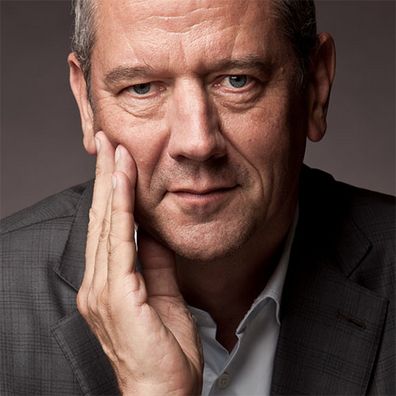Prof. Dr. Jürgen Margraf
Germany
Psychologist
DAAD Scholarship 1983–1984

Portrait Prof. Dr. Jürgen Margraf
© Alexander Basta
How do anxiety disorders and panic attacks arise? How can they be treated? These questions have preoccupied Jürgen Margraf for many years. Today, the psychologist, who was born in 1956, is considered a leading expert in clinical psychology and psychotherapy. His theory: panic disorders can be triggered by completely subjective, psychological and physiological factors. Panic attacks are often triggered by what patients perceive as an accelerated pulse – even when the heartbeat actually remains the same. This insight offers an approach for novel psychotherapeutic treatments.
What do Goethe, Freud and Brecht have in common? All three were not only successful authors, but also suffered from anxiety disorders, which today are diagnosed (…) as panic attacks.
– Jürgen Margraf
Margraf repeatedly tried to overcome prejudices about this illness, which was long considered incurable. Hence, he points out that well-known figures such as Goethe, Freud and Brecht also suffered from anxiety disorders, but these did not prevent them from living a successful life. His analysis of the course that this disorder takes became known in Germany as the Margrafsche Teufelskreismodell and its treatment as the Marburger Therapiemodell. His numerous publications include the three-volume Lehrbuch der Verhaltenstherapie, which is considered a standard reference on the subject.
After studying psychology, completing his doctorate at Tübingen and writing his venia legendi (Habilitation) in Marburg, he received his first professorship at the Freie Universität Berlin in 1992. Later, he accepted the offer of a professorship at the Technische Universität Dresden, and in 1999 moved to the University of Basel as a full professor of clinical psychology and psychotherapy. Then, in 2009, he received a Humboldt Professorship at the Ruhr University Bochum. This highly remunerated award aims to enable researchers to work long term under good conditions at German universities. In Bochum, Jürgen Margraf took on the Chair of Clinical Psychology and Psychotherapy and – linked with it – the management of a research and treatment centre for psychological health. Margraf also held executive positions in numerous bodies: among others, he was chairman of the Scientific Advisory Board on Psychotherapy of the German Federal Government, director of the Swiss National Centre of Competence in Research SESAM on mental health and president of the European Association for Behavioural and Cognitive Therapies (EABCT). He is a member of the German National Academy of Sciences – Leopoldina and was president of the German Society of Psychology from 2012 to 2014.
In 1983–1984, Margraf spent one year at Stanford University as a DAAD scholarship holder. Today, the psychologist sees the opportunity to do research work at one of the world's best universities as a stroke of luck and a turning point in his academic career.